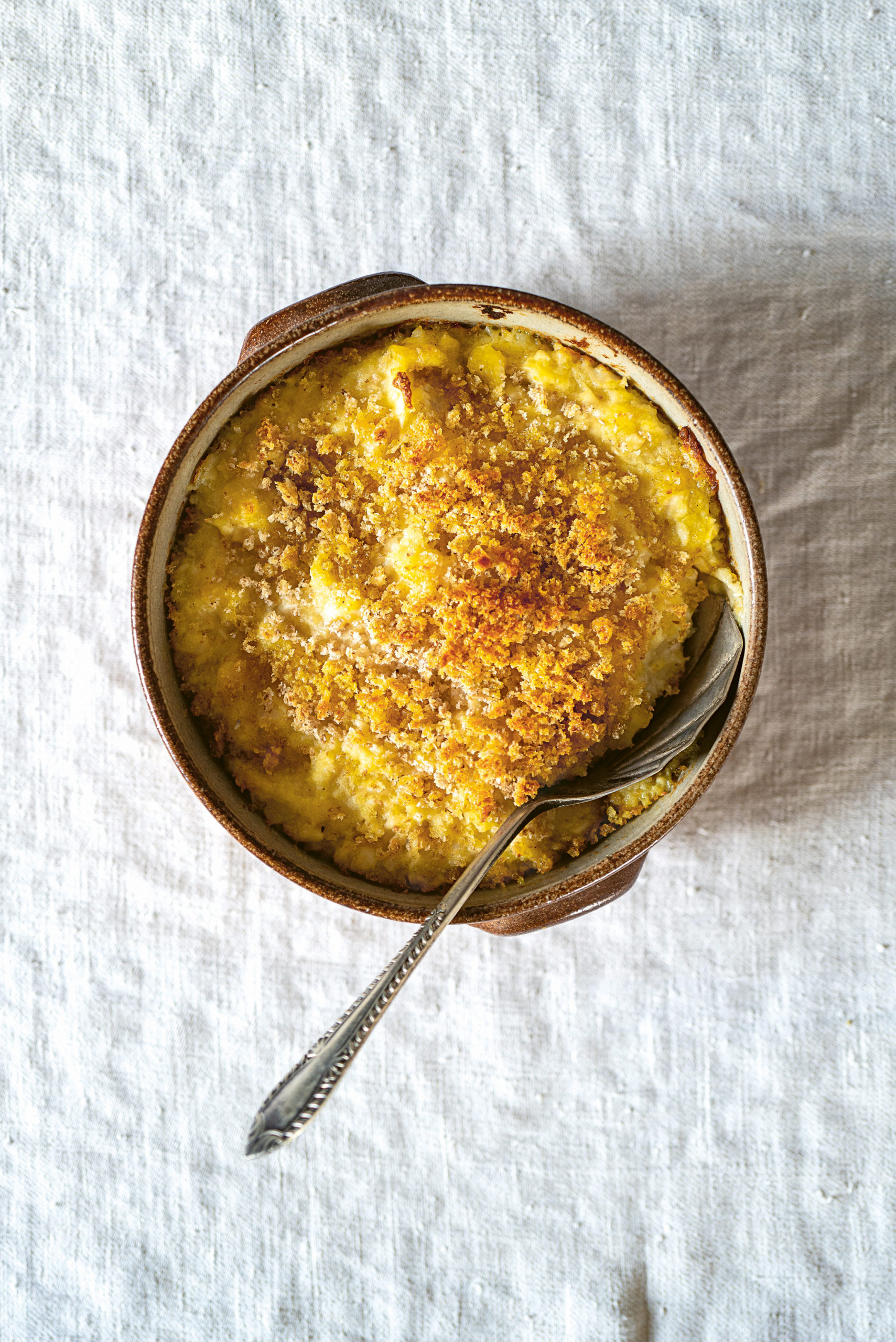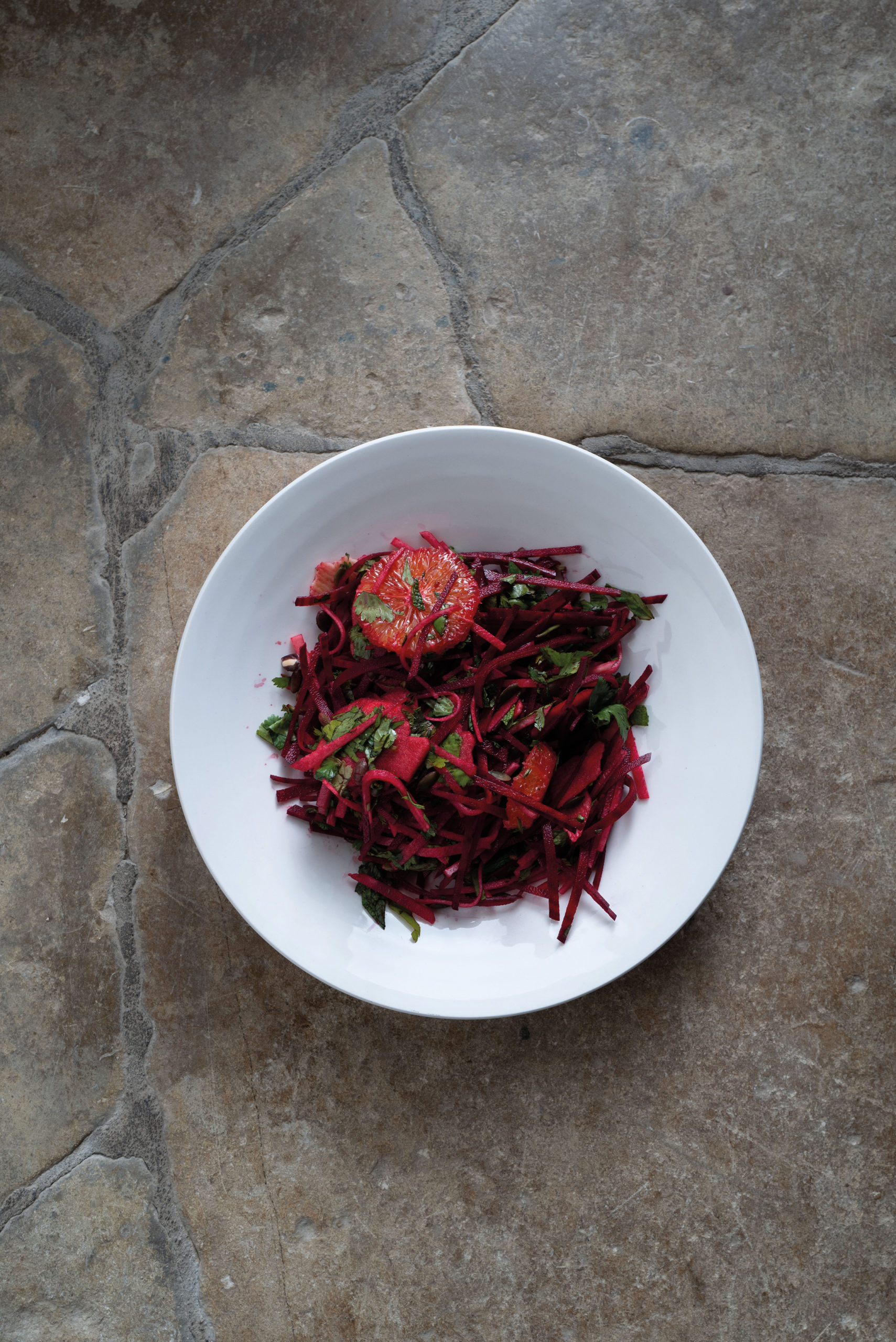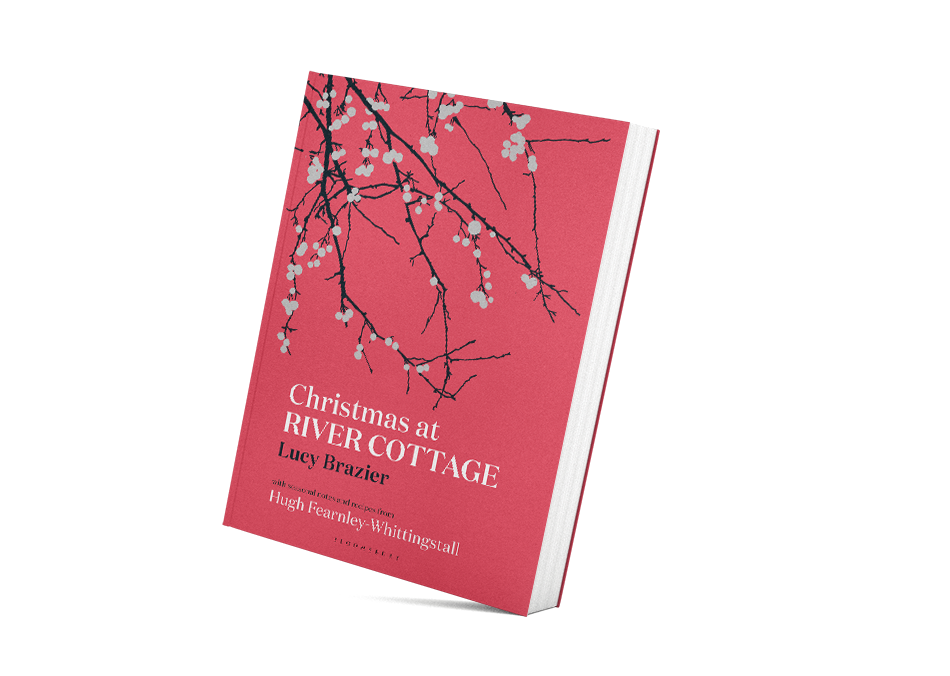We’re offering a taste of Christmas at River Cottage by Lucy Brazier with foreword, essays and seasonal recipes from Hugh Fearnley Whittingstall, published by Bloomsbury, Priced £22.
Brandade with breadcrumbs

Ingredients:•
• 450g fillets of sustainably caught white fish, such as whiting, pouting, pollack, cod or haddock
• 375g floury potatoes, such as King Edward, peeled and cut into even sized chunks
• 40g unsalted butter
• 1 large garlic clove, chopped
• 150ml milk
• 4 tbsp extra virgin olive oil
• 75g coarse breadcrumbs
• Flaky sea salt and black pepper
Prep: 25 minutes | Cooking: 15-20 minutes | Serves: 4-6 as main, 8-10 as starter
Method
First, lightly salt the fish. Slice the fillets off their skins and check for remaining bones. Sprinkle a thin, even layer of salt on a board, lay the fish fillets on top, then sprinkle over a further light covering of salt. Leave for 15–20 minutes & rinse off the salt under a cold tap. Pat fish dry with kitchen paper. While it’s salting, cook potatoes in boiling water for 15–20 minutes until tender; drain and return to hot pan.
Melt the butter in a large pan over a low heat, add the garlic and sweat gently for a couple of minutes. Add the rinsed fish to the pan and pour over the milk. Bring slowly to a simmer, cover and cook very gently for another couple of minutes or until the fish is cooked through. Scoop the fish out of the pan with a slotted spoon onto a plate, leaving the hot milk behind.
Add 2½ tbsp of the extra virgin olive oil and a few grinds of pepper to the hot milk in the pan, then tip in the hot potatoes and mash thoroughly. Break the fish into flakes and mash roughly with a fork then add to the potato mash and stir well. Taste and add more pepper if you like.
Preheat the oven to 190°C/Fan 170°C/Gas 5. Spoon the brandade into a shallow ovenproof dish. Mix the coarse breadcrumbs with the remaining 1½ tbsp olive oil and scatter over the surface of the brandade. Bake in the oven for 15–20 minutes until golden and piping hot.
Red cabbage & beetroot pickle
Red cabbage is a familiar element of Christmas lunch. It is often braised, which makes it an easy dish to cook ahead of time, freeze and then reheat at the last minute. I think it is always good to have at least one vegetable you can get on the table with the minimum of fuss but I prefer my cabbage crunchy. This recipe is exactly that, injecting a fresh zing into the Christmas feast and the days that follow. I usually make mine several weeks in advance. You don’t even need to decant it from its glass jar, just plonk straight on the table.
Ingredients:•
• 420g beetroot, peeled and grated 500g red cabbage, sliced
• Finely grated zest of two oranges
• 10g cumin seeds, toasted and bashed
• 5g caraway seeds toasted and bashed
• Five juniper berries, lightly crushed
For the pickling liquor:
• 700ml cider vinegar
• 20g coriander seeds, toasted
• 20g fennel seeds, toasted
• 10g black peppercorns
• 20g salt
• One dried red chilli (optional)
You will also need:
• A sterilised 1.5 litre Kilner jar

Prep: 60 minutes | Cooking: Five minutes | Makes: 1.5 litres
Method
First, prepare the pickling liquor. Put all the ingredients into a saucepan, pour on 200ml water and slowly bring to the boil. Remove from the heat and set aside to infuse for an hour.
Meanwhile, put the beetroot, red cabbage, orange zest and spices for into a bowl and toss to mix.
Bring the infused pickling liquor back to the boil, then pour it through a sieve straight over the veg mix. Stir to combine.
This pickle is nice to eat as soon as it cools, but ideally should be packed into a sterilised 1.5 litre Kilner jar, sealed and left for a couple of weeks. It will keep in a cool, dark cupboard for up to six months; once opened, it needs to be stored in the fridge.










